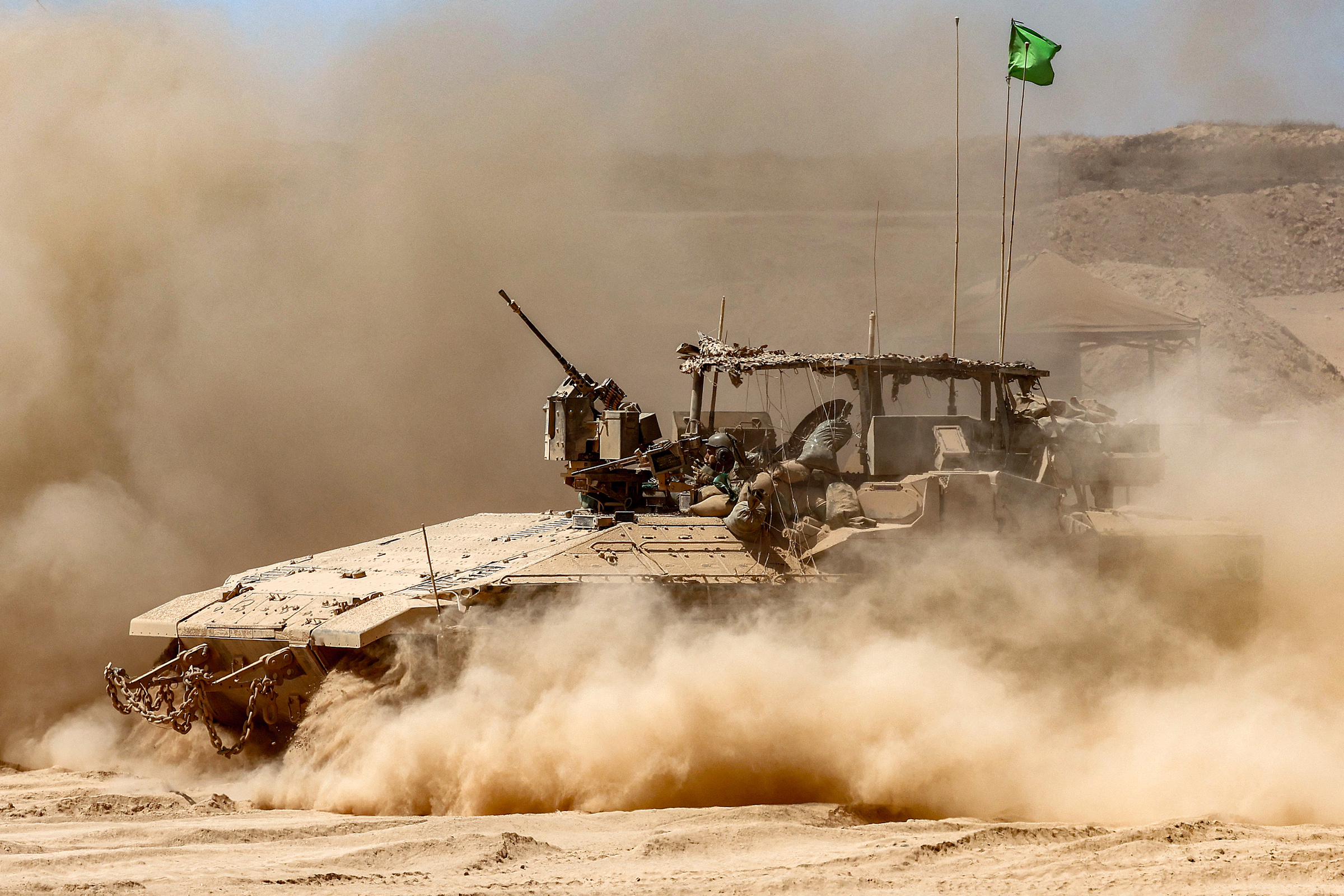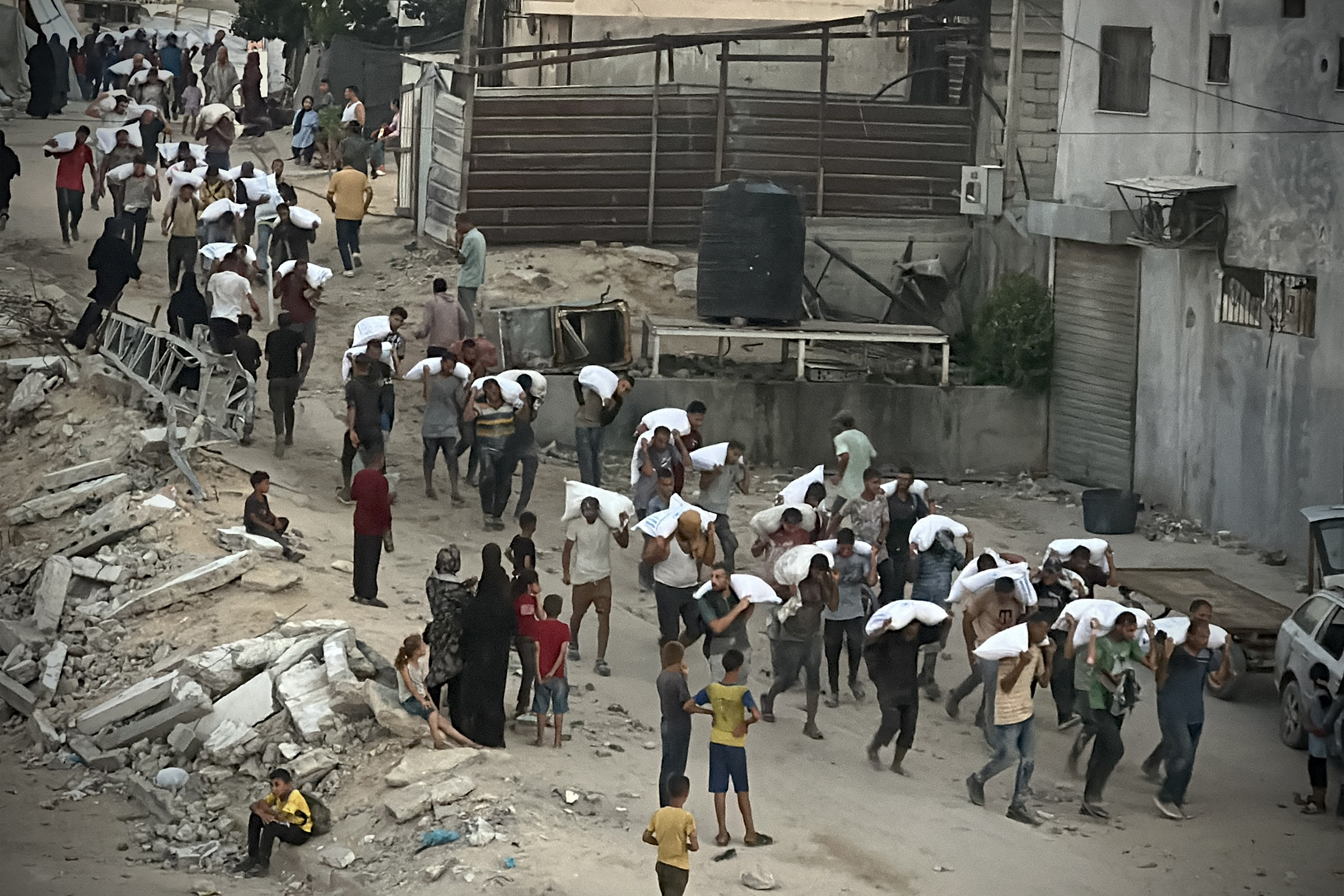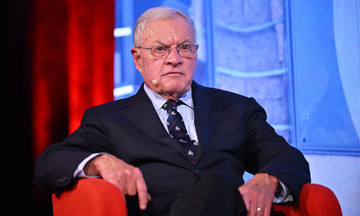The Israel Defense Forces (IDF) announced on 27/7 that it would implement "localized ceasefires" in three areas of the Gaza Strip: al-Mawasi, Deir al-Balah, and Gaza City, from 10 a.m. to 8 p.m. daily.
The IDF will also establish safe routes from 6 a.m. to 11 p.m. daily for United Nations and humanitarian aid convoys delivering food and medicine throughout the Gaza Strip. Twenty-eight shipments of food and essential supplies have been airdropped into Gaza.
This policy of localized ceasefires and expanded humanitarian aid access in Gaza has no set end date and will continue "until further notice" from the IDF. Israeli officials stated they consulted with the United Nations and international organizations on this decision.
 |
Israeli armored vehicles operate in the central Gaza Strip on 24/7. Photo: AFP |
Israeli armored vehicles operate in the central Gaza Strip on 24/7. Photo: AFP
UN Under-Secretary-General for Humanitarian Affairs Tom Fletcher welcomed Israel's support for "scaling up aid for a week." He added that some movement restrictions on aid workers had been eased, but emphasized that this policy needed to be sustained, scaled up, and implemented urgently.
Last week, the UN called on the IDF to implement daily humanitarian ceasefires to increase aid to civilians in Gaza. They also criticized Israel for restricting aid by not guaranteeing enough safe routes for UN convoys.
The Israeli government denies allegations of widespread famine in Gaza but acknowledges shortcomings in food distribution. Tel Aviv has repeatedly blamed the UN and international organizations for "lack of cooperation" in receiving aid at border crossings and distributing it within the Gaza Strip.
Prime Minister Benjamin Netanyahu said on 27/7 that Israel was committed to "allowing the transfer of a minimum amount of humanitarian aid" into the war zone but claimed the UN had "misrepresented" Israel's aid policy.
"They say we are not letting humanitarian aid into the area. That is not true. Convoys were secured before, but now we're formalizing it. They won't have any more excuses. We will continue to fight until we achieve all our goals and achieve a total victory," he declared.
 |
Gaza residents receive food aid in Khan Younis on 25/7. Photo: AFP |
Gaza residents receive food aid in Khan Younis on 25/7. Photo: AFP
Several Arab nations have resumed humanitarian aid to Gaza with the permission of the Israeli military amid growing international concern about widespread famine.
The UN's World Food Programme (WFP) reports that nearly half a million people are enduring "famine-like conditions" in Gaza. WFP's Palestine Regional Director Antoine Renard announced that approximately 80 WFP trucks had entered Gaza, along with over 130 other trucks from Jordan, Israel, and Egypt. He warned that current efforts were insufficient to address the humanitarian crisis in the region.
Gaza health authorities reported on 25/7 that at least 56 people, including 22 children, had died in the past three weeks from malnutrition-related health issues, a sharp increase from the 10 children who died from malnutrition in the previous five months. The World Health Organization (WHO) reported 63 malnutrition-related deaths in Gaza in July, including 24 children under 5.
Muneer al-Boursh, head of Gaza's health authority, urged the international community to urgently transfer medical supplies into the territory to treat malnourished children. "A humanitarian truce will be meaningless if it doesn't provide a real opportunity to save lives. The delay is counted in funerals," he said.
Thanh Danh (Times of Israel, AP)












